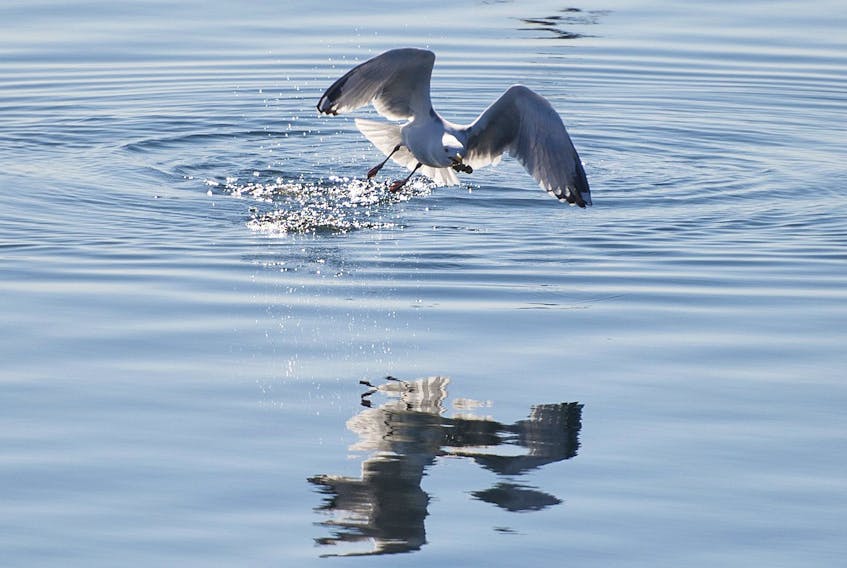Lock eyes with a herring gull and you’re less likely to lose your lunch, a new study says.
University of Exeter researchers placed a clear bag of chips along the ground of coastal areas of Cornwall, U.K., and studied how long it took for them to approach the food as a person watched and then when they didn’t.
“I did find most gulls took longer to approach when I was looking at them in the eye and some didn’t even touch the chips at all, whereas they all did when I was looking away,” lead author Madeleine Goumas said in an interview Wednesday.
“It does seem to be only a small number of individuals that are bold enough to take this risky behaviour.”
Of the 19 herring gulls tested, it took 21 seconds on average for a bird to approach the food — British chips are a thicker version of what North Americans call french fries — when someone was staring at them.
Goumas said she’s never had her food stolen by a gull herself, but has seen other people have their food snatched up by the sneaky birds.
“The gulls are often coming from behind, just quickly swooping in before the person even realizes their food is being taken,” she said.
“So I thought maybe they’re paying attention where people are looking because other animals do this as well.”
The adapting gull
THIEF!!! 😄 .. Seagull stealing a bag of chips.
Posted by Frank Strallent on Monday, March 4, 2019
Goumas said contrary to herring gulls reputation, most of them are wary of being near people.
“I tried to approach several gulls, but most would just fly away or wouldn’t even approach the chips until I was away,” she said, noting the researchers tried to test 74 gulls in total.
Goumas said there are a number of possible reasons why you’re more likely to be the only one enjoying your meal if you’re aware of where herring gulls are.
“It might be that gulls really do have an understanding that someone’s watching and then they have to avoid the food because of that,” she said, adding more research is needed to know why staring has an effect on the birds.
“Or it could be that they just have a propensity to watch for what people are other mammals are doing because it could potentially be a predator that is looking at them and they need to flee or hold still.”
Like gulls do on the Halifax waterfront, Goumas said herring gulls in coastal towns and cities are interacting with people on a daily basis.
“These are birds that are traditionally seabirds and they’ve managed to adapt to be able to live alongside us, which I found very fascinating, but we don’t know long term where they’re going to be or how they’re going to be living,” she said.
Goumas said she plans to study behavioural cues that herring gulls might learn from humans and if eating human food affects the gulls.
“We don’t really know that gulls are doing particularly well in urban areas. Eating chips and ice cream is probably not very good for them,” she said with a laugh.
“But gulls are not usually a problem other than nabbing a chip from people.”
Related:
Gulliver the latest gull to be raised on Halifax library roof









